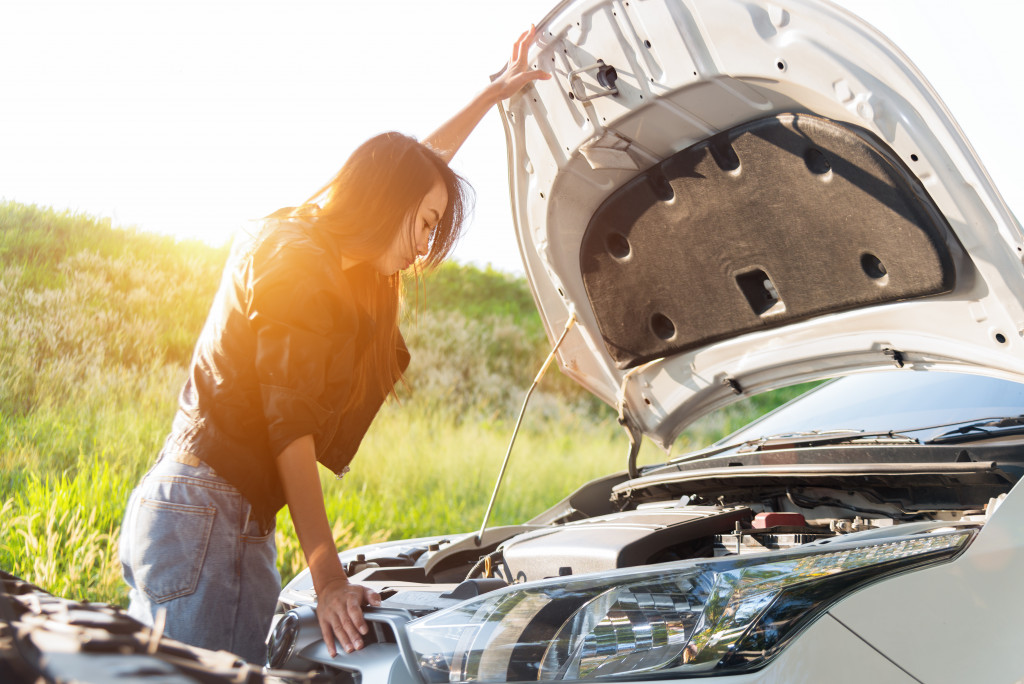• Conduct a pre-trip inspection of your vehicle, including checking the oil levels, tire pressure, tire treads, lights, and brakes.
• Stick to the speed limit to reduce strain on your car’s engine. Take breaks to allow the engine to cool down.
• Pack an emergency kit. This should include a first-aid kit, water and snacks, flashlights, a multi-tool set, and jumper cables.
• Keep your vehicle clean both inside and out to prevent corrosion and maintain its health.
• Check the belts of your car to make sure they are in good condition.
Embarking on a long drive can be an exciting and enjoyable experience, but the slightest issue can quickly become a stressful ordeal when your car suddenly breaks down on the side of the road. Like people, cars need regular checkups and attention to maintain good health. Maintaining your vehicle is vital in preventing any unexpected hiccups during those long road trips. In this blog, you will learn a few essential tips to help avoid car breakdowns and ensure your journey goes as smoothly as possible. Read on to learn more.
Pre-Trip Vehicle Inspection
Prior to your departure, it’s always a good idea to conduct a vehicle inspection. This will help you identify any problems with your car before they become significant issues while you’re on the road. Here are the things you should check thoroughly:
Oil levels
Your car’s oil levels should always be kept at the recommended level. Checking your oil levels is easy and can prevent engine damage caused by a lack of oil.
Tire pressure and treads
Ensure that your tire pressure is at its optimal level, and check for any signs of wear or damage in the treads. Visit your local auto repair shop to have them inspect your tires and replace them if necessary.
Lights
Check to make sure all of your lights – headlights, taillights, brake lights, indicators – are working correctly. This will not only help you stay safe on the road but also prevent any run-ins with law enforcement.
Brakes
Your brakes should be checked to make sure there are no problems. If your car has been making strange noises or is taking longer than usual to stop, it may be time for a replacement.
By doing a thorough pre-trip car inspection, you can be sure that your car is in tip-top shape and won’t let you down when you’re on the road.
Stick to the Speed Limit

Not only is it illegal to speed, but it can also put an unnecessary strain on your car’s engine. When you’re driving long distances, the last thing you want is for your engine to overheat from constantly pushing its limits by going too fast. So be sure to stick to the posted speed limit and take regular breaks, so your engine has the chance to cool down.
Pack an Emergency Kit
It’s always wise to make sure you pack an emergency kit in case something goes wrong on your drive. This should include a first-aid kit, some water and snacks, flashlights, a multi-tool set, jumper cables, and any other items you may need in case of an emergency. This could be a lifesaver if your car experiences any technical difficulties while on the road.
Keep Your Vehicle Clean

Regularly cleaning your vehicle is essential for maintaining its health and offsetting any corrosion issues that can occur over time. A thorough cleaning will help keep all the parts of your car running smoothly, and the interior of your car will be much more pleasant to spend time in if it’s free from dirt and grime.
Check Your Belts
Your vehicle’s belts transfer power from the engine to other parts of the car, such as the alternator, water pump, air conditioner compressor, and power steering pump. While you can’t see these belts without taking apart your engine, you should still be aware of any signs that something is not quite right. If your car starts to make strange noises or the steering wheel feels unusually stiff when turning, it may be a sign that one of the belts is worn out and must be replaced.
If this is the case, seek out a car repair shop specializing in your vehicle’s make and model. For example, if you have a BMW X6, make sure you get it fixed by a shop specializing in BMWs. They will have the right tools and parts to get your car back in working order. They’ll also have the expertise to diagnose any further issues and ensure your vehicle is running safely.
By following these essential tips, you can be sure your car will stay in good health and won’t let you down on those long road trips. By maintaining your car properly and being prepared for emergencies, you’ll hit the road with confidence, knowing that you’re safe from unexpected breakdowns!

